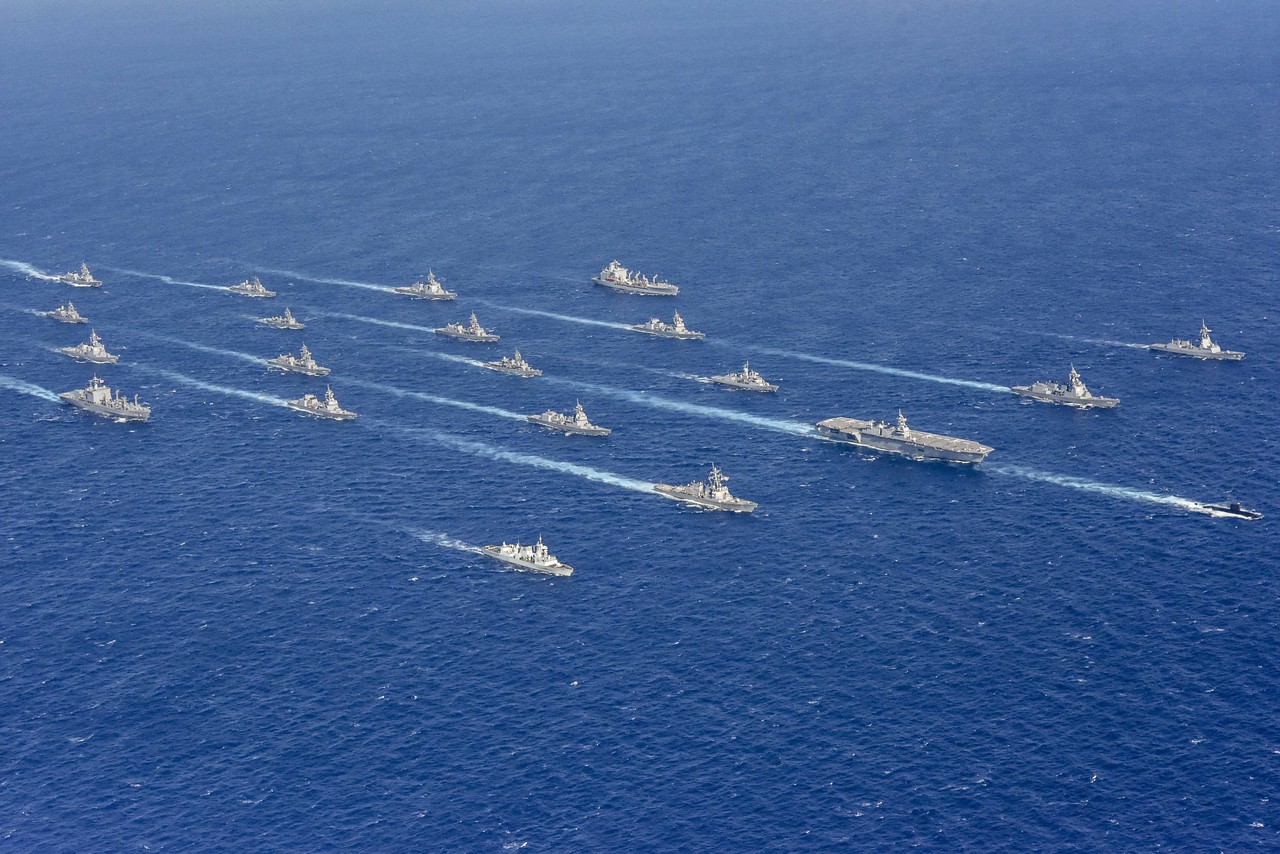A top Defense Department official said the U.S. and its allies are facing a number of global threats — from Russia, North Korea, Iran, Syria and various terrorist groups.
John C. Rood, undersecretary of defense for policy, told the Senate Armed Services Committee that a growing concern, however, is the military, economic and political high-end threats to Indo-Pacific region allies and partners emanating from China.
Rood testified today at a hearing on strategic threats, ongoing challenges and National Defense Strategy implementation.
In response to regional threats from China, the Defense Department is strengthening its military relationships with a number of countries, he said, citing examples in his oral and written testimony:

Japan
The department is integrating its National Defense Strategy with Japan’s analogous National Defense Program Guidelines and has an ongoing dialogues to reevaluate roles, missions and capabilities while increasing operational readiness and training, Rood said.
DOD is also increasing cooperation with the Japanese in space, cyberspace, the electromagnetic spectrum, and artificial intelligence as well as cross-domain operations, he added.
India
“We are committed to a common vision for the U.S.-India Major Defense Partnership, which we will advance … on Dec. 18,” Rood said.
Additionally, the department has agreed to expand military-to-military cooperation and improve interoperability, including by establishing a new tri-service amphibious exercise that will be called Tiger Triumph, he said.

Taiwan
Consistent with the policy articulated in the Taiwan Relations Act, the U.S. continues to make available to Taiwan the defense materiel and services necessary to enable it to maintain sufficient self-defense capability, Rood said.
This year, DOD has approved more than $10 billion in defense sales — such as M1A2 Abrams tanks and F-16 Fighting Falcon fighters — to recapitalize its force.
“We are supporting their development of more mobile, survivable and asymmetric capabilities,” Rood said. “The ultimate goal is to develop a more combat credible force.”
Singapore
“No country in Southeast Asia does more than Singapore to enable a U.S.-forward presence in the Indo-Pacific,” Rood said.
More than 100 U.S. warships and 800 to 1,000 U.S. military aircraft transit through Singapore each year, he noted.
Singapore supports DOD’s rotational deployment of its littoral combat ships and P-8 Poseidon aircraft, Rood mentioned.
Also, Singapore forces have four active training units stationed in the United States. “We expect to agree soon on a permanent Singapore fighter training presence in Guam,” he said, adding that Singapore is a top purchaser of advanced U.S. weapons systems.

Vietnam
“In Vietnam, we are building a productive defense relationship and overcoming the legacy of the Vietnam War,” he told lawmakers.
Last year, the U.S. Navy conducted the first aircraft carrier visit to Vietnam since the end of the war. The U.S. has also transferred a high-endurance Coast Guard cutter to Vietnam. In addition, Defense Secretary Dr. Mark T. Esper announced during his visit to Hanoi two weeks ago that the U.S. will provide a second such cutter to Vietnam.
Besides mentioning those nations, Rood said the department is engaging with island nations throughout the Pacific and is planning to invest $521 million over the next five years in programs like the Maritime Security Initiative to build the capacity of allies and partners in the region, including developing partners’ ability to conduct maritime security and maritime domain awareness operations and advancing interoperability with U.S. forces.
Air Force Lt. Gen. David W. Allvin, the Joint Staff’s director for strategy, plans and policy, also testified. The two discussed a number of other topics.













